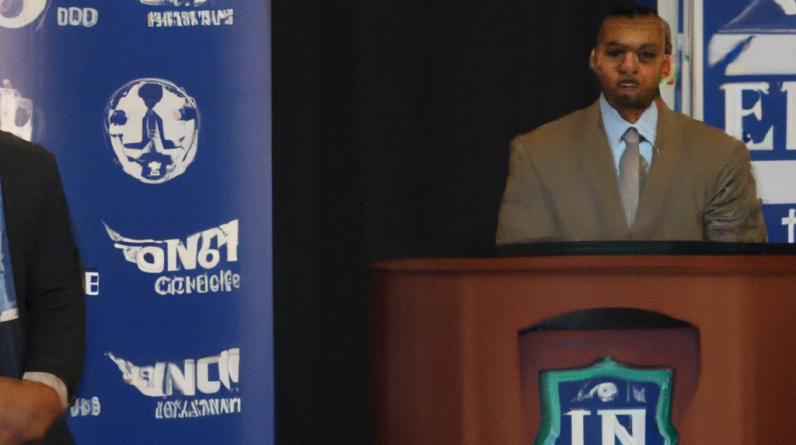
In the world of modern finance, there is a growing movement called financial minimalism that aims to simplify your life and your finances. By embracing this approach, you can free up more time and money to focus on the things that truly matter. To begin your journey towards financial minimalism, it is important to set clear goals for your financial life. Whether it’s getting out of debt, saving money, or starting to invest, having a specific focus can make these goals more attainable. Additionally, consolidating your accounts can make it easier to track your finances and avoid unnecessary stress. Going paperless and using apps to manage your finances can also streamline the financial management process. Building an emergency fund and avoiding unnecessary debt are crucial steps in achieving financial security and freedom. Lastly, simplifying your investing by choosing low-cost index funds can take away the pressure of constantly monitoring individual stocks. By implementing these strategies, you can simplify your finances and create a more peaceful and balanced financial life.
Table of Contents
Benefits of Financial Minimalism
Financial minimalism is a concept that involves simplifying your life and your finances in order to have more time and money for the things that truly matter. By adopting financial minimalism, you can reduce stress, enhance your financial well-being, and achieve greater financial freedom.
More time and money for things that matter
One of the key benefits of financial minimalism is the ability to prioritize your time and money towards the things that truly matter to you. By simplifying your finances and eliminating unnecessary expenses, you can free up resources to invest in experiences and activities that bring you joy and fulfillment. Whether it’s spending more quality time with loved ones, pursuing a passion project, or traveling to new destinations, financial minimalism can provide the freedom to focus on what truly matters in life.
Setting Clear Goals
Setting clear goals is an essential aspect of financial minimalism. By defining your financial objectives, you can stay focused and motivated to make progress towards achieving them. Start by identifying your short-term and long-term financial goals, such as paying off debt, saving for retirement, or buying a home. Having a clear roadmap will give you a sense of purpose and guide your financial decision-making.

Consolidating Accounts
Keeping track of multiple bank accounts and financial accounts can be overwhelming and time-consuming. As part of financial minimalism, consider consolidating your accounts into one or two primary accounts. This not only simplifies the tracking of your finances but also reduces the need for multiple apps and platforms. Additionally, consolidation can also apply to retirement accounts, making it easier to manage and monitor your investments.
Simplifying Taxes
Taxes can often be a stressful and complicated aspect of personal finances. However, with the right tools and strategies, you can simplify the process and reduce the associated stress. Consider using tax software like TurboTax Live, which provides live expert support and guidance throughout the process. These experts can answer your questions, ensure accuracy, and maximize potential deductions. Additionally, take advantage of available tax deductions to further optimize your tax situation.

Reducing Paper Clutter
Paper clutter can quickly accumulate and create unnecessary stress. By going paperless, you can significantly reduce clutter and streamline your financial documentation. Contact your financial institutions and service providers to opt for paperless statements and notifications. Additionally, consider scanning important documents and storing them securely on your computer or in the cloud. This not only saves physical space but also makes it easier to search for and access important financial information when needed.
Using Financial Apps
Managing your finances can be made much simpler with the help of financial apps. These apps allow you to consolidate your financial data in one place, making it easier to track income and expenses. By connecting your bank accounts and credit cards, you can automate the process of categorizing transactions and monitoring your spending patterns. Additionally, many apps offer budgeting tools, bill payment reminders, and financial goal tracking features to help you stay on top of your financial well-being.

Building an Emergency Fund
Having an emergency fund is an essential component of financial security. By saving and building an emergency fund, you can protect yourself from unexpected expenses and avoid going into debt. Aim to save three to six months’ worth of living expenses in a separate account or savings vehicle with high liquidity. This fund will provide a safety net during challenging times, giving you peace of mind and the ability to navigate unexpected financial circumstances.
Avoiding Unnecessary Debt
Debt can quickly become a burden and hinder financial progress. As part of financial minimalism, focus on avoiding unnecessary debt whenever possible. Differentiate between good debt, such as low-interest mortgages or student loans, and bad debt, such as high-interest credit card debt. Prioritize paying off high-interest debt and consider using strategies like the debt snowball or debt avalanche methods to accelerate the repayment process. By avoiding unnecessary debt, you can maintain financial freedom and allocate your resources towards more fulfilling purposes.
Simplifying Investing
Investing doesn’t have to be complicated or time-consuming. By simplifying your investing approach, you can reduce stress and still achieve your financial goals. Consider opting for low-cost index funds, which offer diversification and long-term growth potential. These funds track a specific market index, such as the S&P 500, and require less frequent trading compared to individual stocks. By adopting a long-term perspective and staying invested, you can benefit from the overall growth of the market while minimizing the need for constant monitoring and decision-making.
Financial minimalism provides numerous benefits that can enhance your financial well-being and overall quality of life. By simplifying your finances, setting clear goals, consolidating accounts, simplifying taxes, reducing paper clutter, utilizing financial apps, building an emergency fund, avoiding unnecessary debt, and simplifying investing, you can achieve greater financial freedom and focus on what truly matters to you. Start implementing these strategies today and experience the positive impact of financial minimalism on your life.




